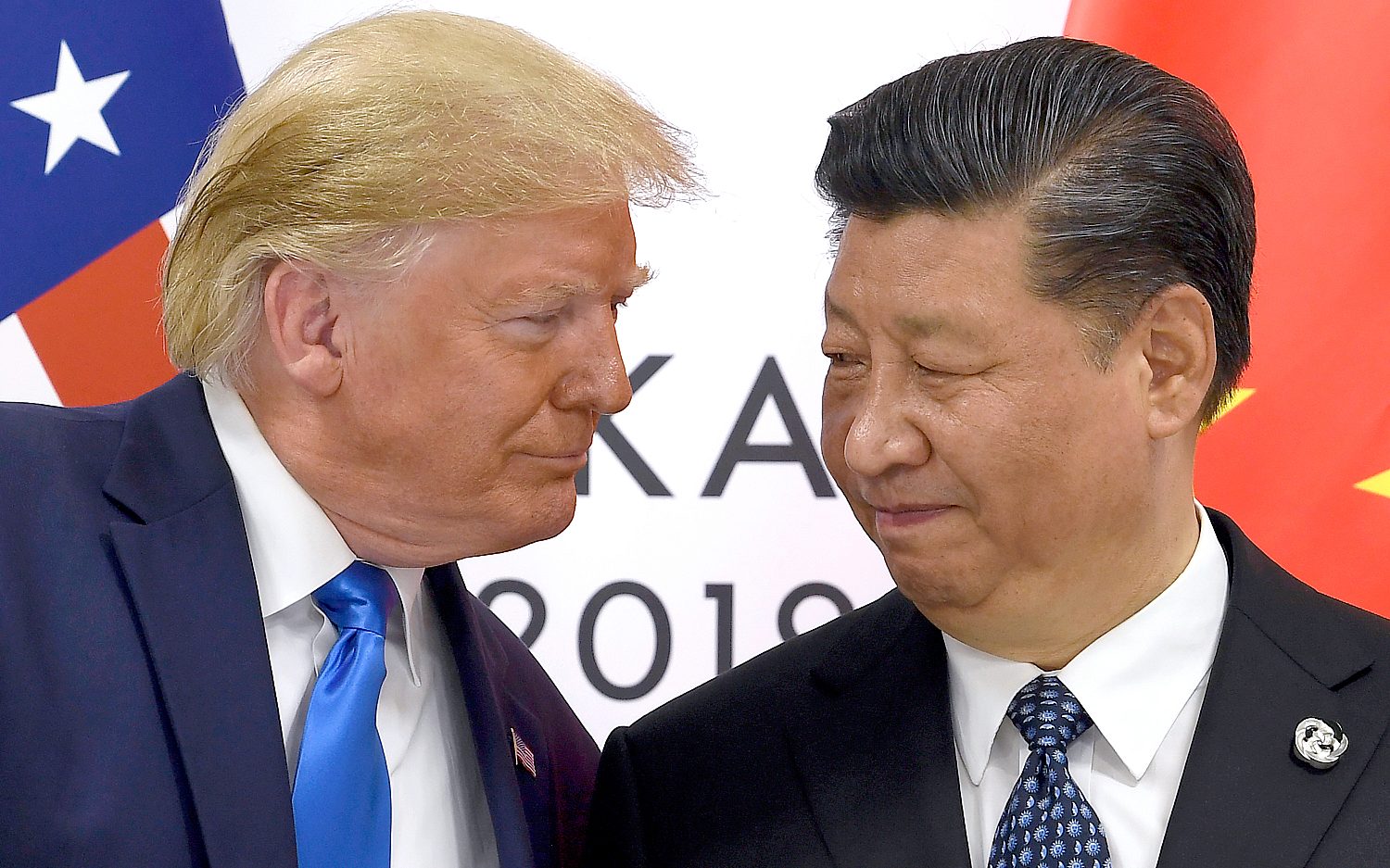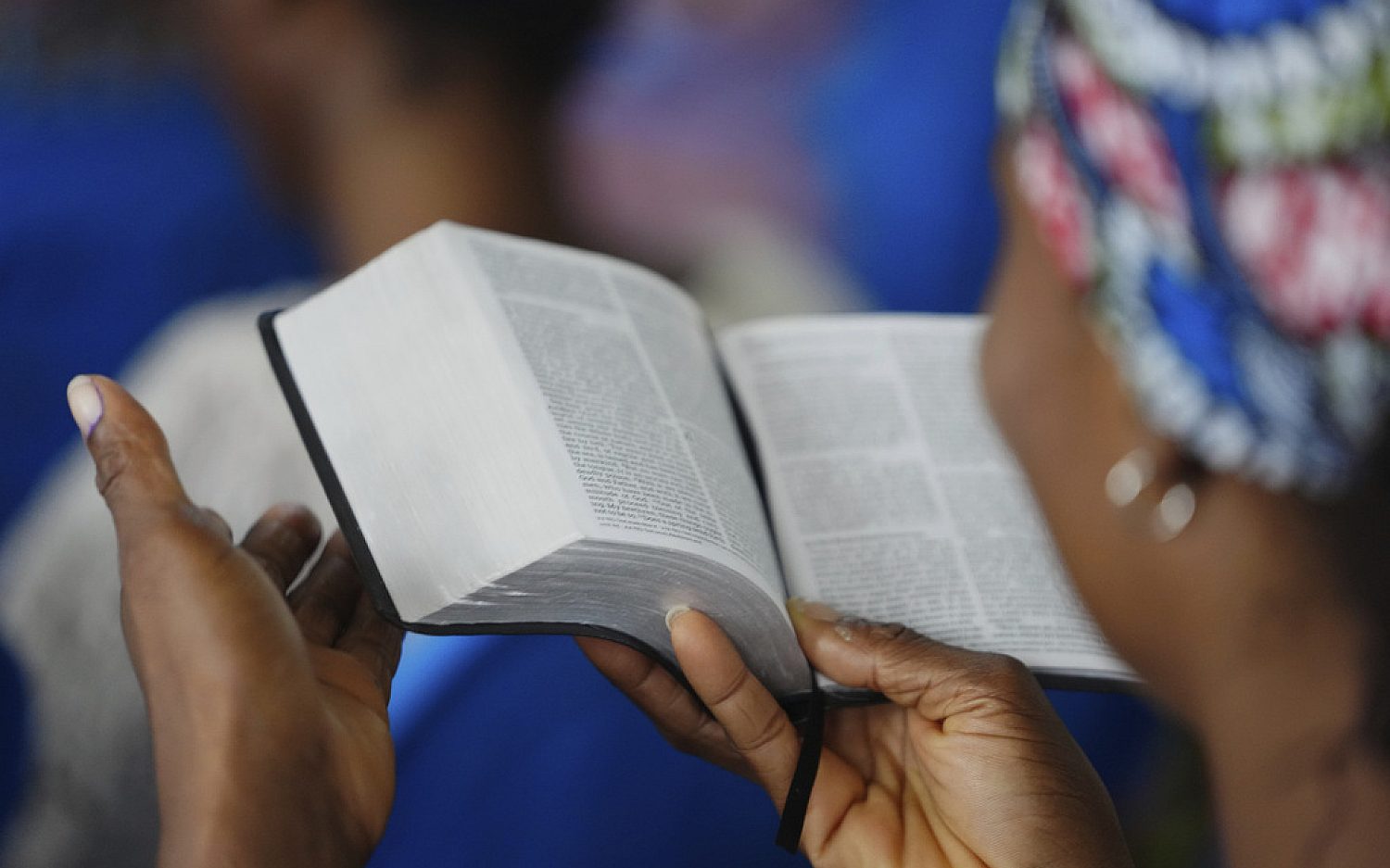China concerns
While Virginia strengthens economic relations with China, China strengthens crackdown on Christians
Gov. Bob McDonnell and several other Virginia officials returned from their trip to East Asia earlier this month, having agreed to several business deals with executives in China. The Virginia delegation promoted Virginia's wine industry, agricultural exports, and cultural attractions while meeting with representatives from China's technology, manufacturing, and shipping industries.
China is now Virginia's second largest export destination after an 8-percent growth in 2010. Over the past decade, Virginia's exports to China have grown from a value of $197 million to a value of $1.2 billion. Virginia exports to China include integrated circuits, synthetic fibers, aluminum, industrial machinery and plastics.
Despite this growth, Gov. McDonnell would like to see more trade with China.
"Unfortunately Virginia has failed to properly devote resources in recent years to market to China, putting us behind other states in competing for investment opportunities," McDonnell said in a Shanghai press conference. "That is no longer the case. I applaud the Virginia legislature's decision to invest in the Commonwealth's efforts to expand its international reach."
Over 120 Japanese companies already do business in Virginia, and McDonnell said he hopes that the state can create the same level of success with Chinese companies. Pending deals with China include agricultural exports such as soybeans and chicken from Virginia and an agreement with a Beijing-based steel company. A Chinese shipping company has already agreed to increase the number of stops made in Virginia, increasing traffic in the Hampton Roads' port.
"When we market the Commonwealth to China, and the world, we help create good paying jobs and more opportunities for Virginians," McDonnell said. "We look forward to sharing globally the many benefits of doing business and creating jobs in Virginia. Virginia is wide open for business."
During the trip, McDonnell announced the opening of a Virginia trade office in Shanghai. The establishment of Virginia Economic Development Partnership (VEDP) China gives Chinese companies the opportunity to work closely with Virginia businesses and consumers.
While McDonnell acknowledged some possible impediments to trade, such as tariffs and exchange rates, during a May 14 teleconference from Beijing, the Virginia governor did not address China's human rights violations. That week, Chinese police raided a Protestant church in Henan Province. All three floors of the church building were searched, thousands of dollars worth of property was taken, and 49 people were detained.
"Worst in the last 20 years"
Over the past decade, human rights activists and economists have debated whether the US should leverage its influence through trade to pressure China into improving its human rights record. According to Amnesty International, China is the perpetrator of widespread violations such as harassment, surveillance, imprisonment, censorship and repression of minorities. Approximately 500,000 people are being held by the police state without a fair trial, while millions are unable to use the legal system to address their grievances. China is also the world's leading executioner.
Persecution of Christians in China is very common. China requires Christians to register their churches with the government and accept Communist Party oversight. There are approximately 100 million Christians in China, 75 percent of which attend illegal "underground" churches. These churches are often raided and the members are arrested and imprisoned. It remains illegal to teach Christianity to youths under 18 years old in China, and any evangelical work, especially the teaching of the Second Coming, is forcibly restrained. In April, the U.S. Commission on International Religious Freedom named China as one of the world's worst violators of religious liberty.
"Frankly, I think that China's human right situation is probably worse now than at any period for the past twenty or more years," said Dr. David Aikman, author of Jesus in Beijing: How Christianity is Transforming China and Changing the Global Balance of Power. "The suppression of Christian worship in house churches, not only by Beijing but in many other locations in China, is just outrageous, and Americans should properly be offended over the restriction of rights which they take for granted."
What works best?
How can the United States encourage human rights improvement in China? Will economic engagement encourage China to improve human rights, or will "punishment," in the form of trade reduction, force China's hand?
"It's delusional to think that trade in and of itself is going to turn China from a totalitarian, atheistic autocracy into a Jeffersonian democracy," said Aikman, an award-winning journalist and professor of history at Patrick Henry College. "That's been a delusion of would-be China traders over the last 30 years. It needs to be remembered that Hitler's Germany was a very successful economic entity and American companies did business with German corporations. It didn't have the slightest effect on Nazi control of German society."
But Aikman does not believe a trade reduction would force China to improve human rights conditions.
"America needs Chinese trade as much as China needs American trade. The two countries are in a classic state of mutual dependence; they need us and we need them. I don't think a massive reduction in trade would have the slightest impact on how the Chinese government treats human rights."
Chinese house church representatives have echoed these sentiments, worrying that if America "punishes" China through trade reduction, Chinese officials would then crack down on Christians who voice complaints against their government.
Aikman suggests that American businesses should consider adopting principles similar in nature to the 1977 Sullivan Principles. The Sullivan Principles, widely accepted by US businesses, were used to apply economic pressure to South Africa to end the apartheid.
"There's been an escalation of the crackdown nationwide," said Bob Fu, founder of the US-based China Aid Association, earlier this month. Fu added that there is a growing intolerance of any form of dissent. Many congregations that were previously allowed to meet for worship are being pressured to disband.
Targeted action by individual Americans may actually have influence on Chinese officials, said Aikman. A mass letter-writing campaign launched at Chinese consulates and emissaries around the world, complaining about the Communist oppression, may influence the Chinese government to rethink its position on human rights. For years, Chinese officials have denied that they are violating human rights or have engaged in cover-ups to protect their international reputation.
"There are instances where that kind of pressure has had effect," Aikman said. "But you can't quantify it, and say it always works or it's the only thing that works."
One recent example of the influence of coordinated American pressure is the Gao Zhisheng case. In February 2009, Gao, a Christian human rights attorney in China and two-time Nobel Peace Prize nominee, was seized by Chinese police officers and held captive for more than a year. Gao had been applauded by the Chinese government early in his career when he took up cases of Chinese citizens against corporations, but, when he spoke out boldly against the Chinese government, even warning that China's human rights violations made it an inappropriate Olympics host, Chinese officials turned hostile.
After his disappearance in 2009, millions of people protested the actions of the Chinese government and thousands of letters and petitions were sent to embassies around the globe. On March 27, 2010, Gao was released and was able to give his story to reporters from the Associated Press. Gao told reporters that for 14 months he had been imprisoned at various locations and brutally tortured. His captors had beaten him with pistols, suffocated him with wet towels and plastic bags, and given electric shocks to his genitals. Gao refused to describe many of the tortures he endured.
"That degree of cruelty, there's no way to recount it," he said.
Since giving the interviews, Gao has once again disappeared and has not been seen for 18 months. Now, there is only speculation about where he is.
The outcry by millions of individuals spurred China into action in an attempt to save face. But while Gao has once again gone missing, his words serve as a reminder of the suffering inflicted on Christians and human rights minorities in China.
"I think it's a very difficult situation to have any sort of sledgehammer-type regulations," Aikman said. "But in principle, I think American corporations or government agents, like the governor of Virginia, should really try to think through what the implications are of encouraging good economic relations with China when China is behaving with singular oppressiveness towards human right minorities."
The Associated Press contributed to this report.
An actual newsletter worth subscribing to instead of just a collection of links. —Adam
Sign up to receive The Sift email newsletter each weekday morning for the latest headlines from WORLD’s breaking news team.




Please wait while we load the latest comments...
Comments
Please register, subscribe, or log in to comment on this article.